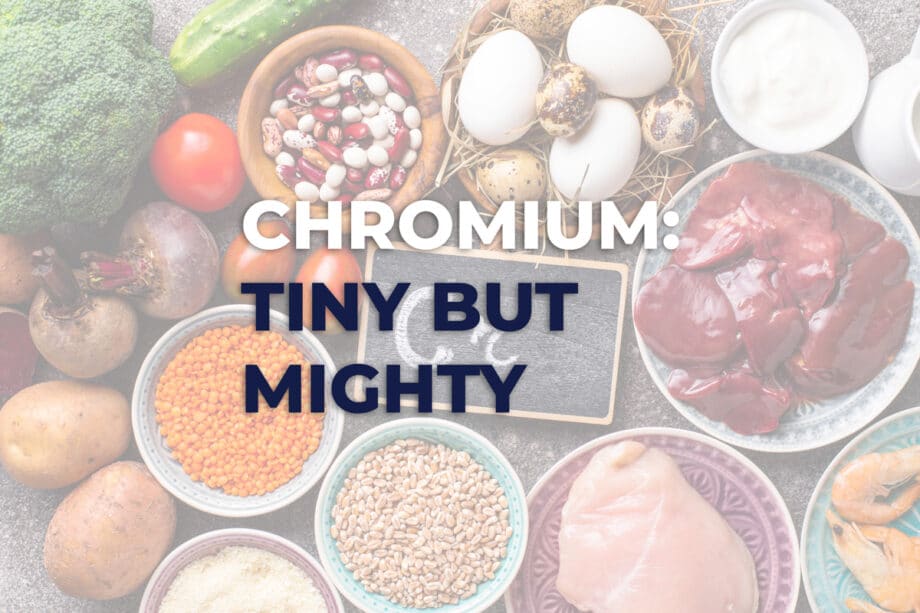Is it true that some of the most substantive minerals in our bodies function on the smallest doses? Well…YES! The amount needed does not reflect importance. Trace minerals support wellness. One essential trace mineral—chromium—shows their vitality.
What Is Chromium?
An essential trace mineral best known for its role in enhancing insulin activity. It may further support the body through its involvement in the breakdown of carbohydrates, fatty acids, and proteins.
Chromium & Our Bodies
Chromium is an essential trace mineral best known for its role in enhancing insulin activity. Insulin regulates the amount of glucose in our blood. High glucose levels—and low glucose levels—lead to severe adverse effects in the body. Therefore, adequate amounts of effective insulin prove vital.
- Insulin: supports increased insulin sensitivity; supports increased insulin activity
Unlike some vitamins and minerals, this mineral supports one primary function in the body i.e., increasing insulin sensitivity to support increased insulin activity. Its involvement in increased insulin activity may allow the body to more effectively breakdown carbohydrates, fatty acids, and proteins. The body stores chromium in several places:
- In the blood, bound to plasma proteins
- In the blood, unbound
- Bone
- Liver
- Spleen
- Soft Tissue
Though this mineral supports one body process, we cannot sustain life without sustained insulin levels.
Daily Recommended Intake: Chromium
You will find the daily recommended intake for average, healthy adults below:
| Daily Recommended Intake | |
| Adult Males | 35 micrograms/day |
| Adult Females | 25 micrograms/day |
| Pregnant Females | 30 micrograms/day |
| Breastfeeding Females | 45 micrograms/day |
Pregnancy often requires higher doses as it supports your body in sustaining normal glucose levels while developing the fetus; breastfeeding often requires increased daily intakes for essential vitamins and minerals. You can consume this vitamin through your diet or through supplementation. Do whatever best supports your diet preferences and individual nutrient sufficiency.
Natural Sources of Chromium
We can consume this mineral through omnivorous, whole foods. See examples below:
- Apples
- Bananas
- Beef
- Grape Juice
- Green Beans
- Orange Juice
- Turkey
You can source this mineral through plant- and animal-based foods. We only require trace amounts, so many individuals reach nutrient sufficiency by eating whole food diets that include natural or fortified chromium.
If you struggle to consume adequate amounts of essential minerals in your diet, consider supplementation! Supplementation exists to close nutrient gaps. If you have concerns about your individual health as it relates to chromium intake, reach out to your healthcare provider!
Quick Facts
Chromium is an essential trace mineral best known for its role in enhancing insulin activity.
- What Is It: an essential trace mineral
- What Does It Do: enhances insulin sensitivity and insulin activity
- How Much Do I Need: adult male: 35mcg/day & adult females—25mcg/day
- Natural Sources: whole foods such as apple juice, bananas, orange juice, and turkey
If you would like to learn more about chromium and ongoing field studies, click here!

